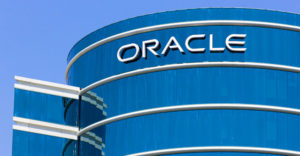Some of the challenges that app companies face, especially cloud front- and back-office companies, include data location and security. A cloud business linked directly to end customers might not see this, but service providers like financial institutions and telcos, integrators, and independent software vendors (ISVs) experience this regularly. They are both the customers of and vendors to others of cloud services.
End customers can also feel helpless when their primary vendor cannot change its provider’s behavior. For instance, the situation is less than ideal if you live in a country with data residency requirements, but your cloud provider can’t locate your data near you. The same applies if you need customization to a business process or packaging.
At the same time, data security is an overriding issue. We live in an era when bandits inhabit our major data pathways the same way highwaymen lurked on the roads between cities in the Middle Ages. Data theft and ransom present a drag on commerce and business performance at a time when we should be setting up the paradigms for the next century.
Partners as Cloud Providers
Oracle, on Tuesday at CloudWorld, introduced Oracle Alloy. This platform technology addresses some of these concerns while making cloud computing more flexible to match the future designs of business, commerce, and services.
With Oracle Alloy, service providers, integrators, and ISVs working with Oracle Cloud Infrastructure (OCI) can use Oracle Alloy to keep workloads in-country and operate clouds independently — innovating and customizing as the need arises and taking advantage of new opportunities.
As a practical matter, this means giving partners greater flexibility in configuring, packaging, and customizing their offerings to suit their customers’ particular needs.
With this, Oracle has opened its toolbox, including developer, UX, DevOps, and security tools it uses to build OCI native services.
A long time ago, Oracle cautioned its customers to use its apps as-is out of the box to prevent problems with errors introduced by the customization process — the issue of fitness for the purpose was ignored.
Those days are gone because when customers use the same tools — and let’s be frank, the same code generators that the vendor uses — it becomes very hard, though not impossible, to introduce errors.
Most importantly, the generated new apps should carry all the same security benefits as those from the vendor.
Government Involvement?
One area that Oracle seems to be mum about is national defense. Microsoft won the competition to build the next-generation IT systems for the Department of Defense a while ago; since then, it’s been crickets.
Without knowing a lot more, though, it would seem Oracle Alloy might be a very good fit where an entity needs to quickly build standardized systems that inherit standards and tools from a parent entity while preserving a firewall between the two.
This is just blue-sky thinking, but I have heard that Microsoft is taking on somewhat of a prime contractor role in the project and inviting various other players to deliver on specific tasks.
But let’s not get too far out over our skis. Oracle Alloy sounds wonderful and seems like a platform designed for our times. But it also puts one in mind of another programming project, albeit a fictional one. Jurassic Park was essentially about splicing together old DNA code to make new dinosaurs. What could go wrong?
I don’t expect a Jurassic Oracle any time soon, but the success of something like Oracle Alloy is directly dependent on proper use and goodwill. It suggests to me that government might need to up its game at some point because, regardless of where the servers are, there may come a day when export controls are debated for software just as chip development controls are currently being discussed.
Just saying.



























































